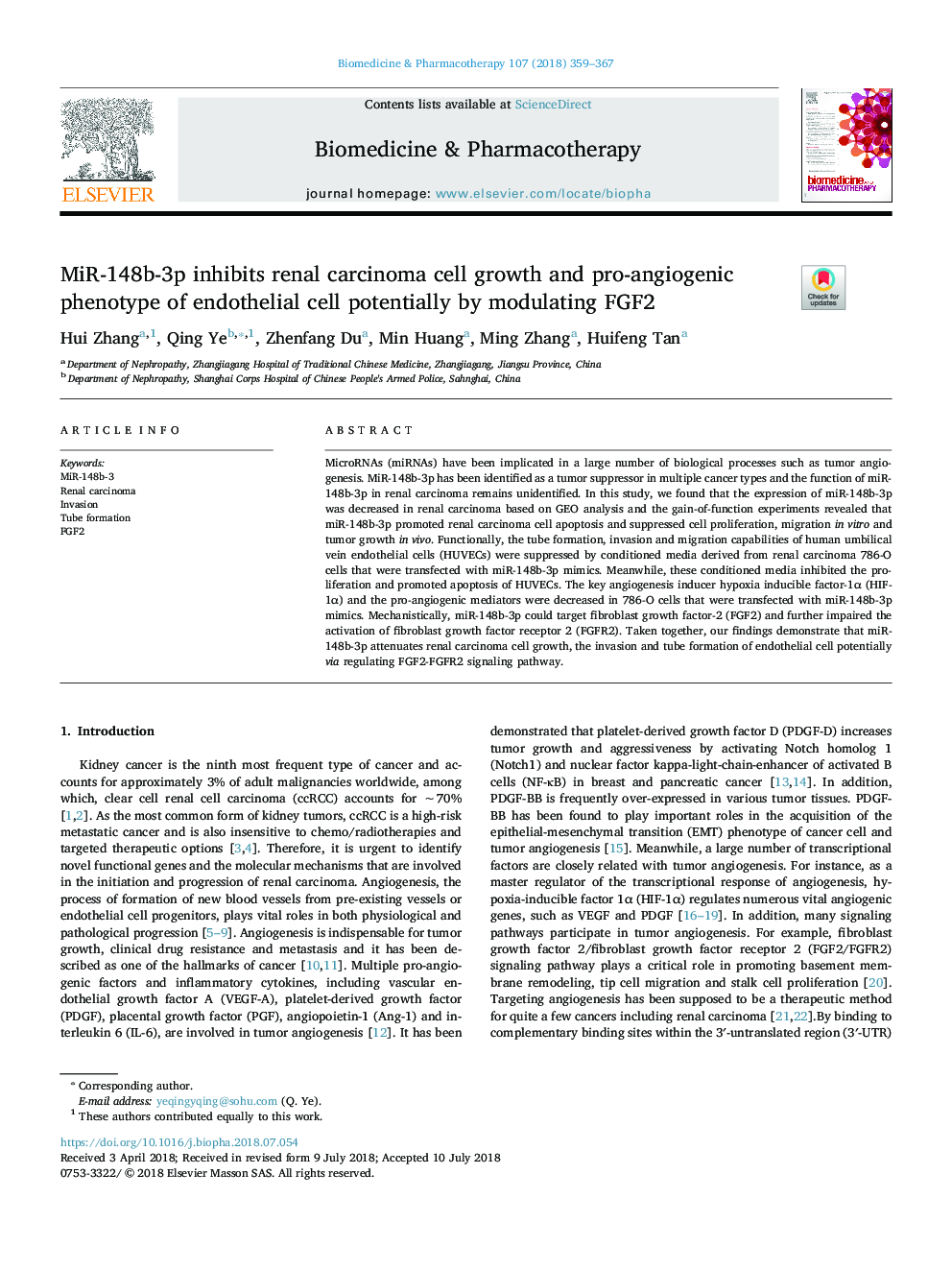| Article ID | Journal | Published Year | Pages | File Type |
|---|---|---|---|---|
| 9954831 | Biomedicine & Pharmacotherapy | 2018 | 9 Pages |
Abstract
MicroRNAs (miRNAs) have been implicated in a large number of biological processes such as tumor angiogenesis. MiR-148b-3p has been identified as a tumor suppressor in multiple cancer types and the function of miR-148b-3p in renal carcinoma remains unidentified. In this study, we found that the expression of miR-148b-3p was decreased in renal carcinoma based on GEO analysis and the gain-of-function experiments revealed that miR-148b-3p promoted renal carcinoma cell apoptosis and suppressed cell proliferation, migration in vitro and tumor growth in vivo. Functionally, the tube formation, invasion and migration capabilities of human umbilical vein endothelial cells (HUVECs) were suppressed by conditioned media derived from renal carcinoma 786-O cells that were transfected with miR-148b-3p mimics. Meanwhile, these conditioned media inhibited the proliferation and promoted apoptosis of HUVECs. The key angiogenesis inducer hypoxia inducible factor-1α (HIF-1α) and the pro-angiogenic mediators were decreased in 786-O cells that were transfected with miR-148b-3p mimics. Mechanistically, miR-148b-3p could target fibroblast growth factor-2 (FGF2) and further impaired the activation of fibroblast growth factor receptor 2 (FGFR2). Taken together, our findings demonstrate that miR-148b-3p attenuates renal carcinoma cell growth, the invasion and tube formation of endothelial cell potentially via regulating FGF2-FGFR2 signaling pathway.
Related Topics
Health Sciences
Medicine and Dentistry
Oncology
Authors
Hui Zhang, Qing Ye, Zhenfang Du, Min Huang, Ming Zhang, Huifeng Tan,
